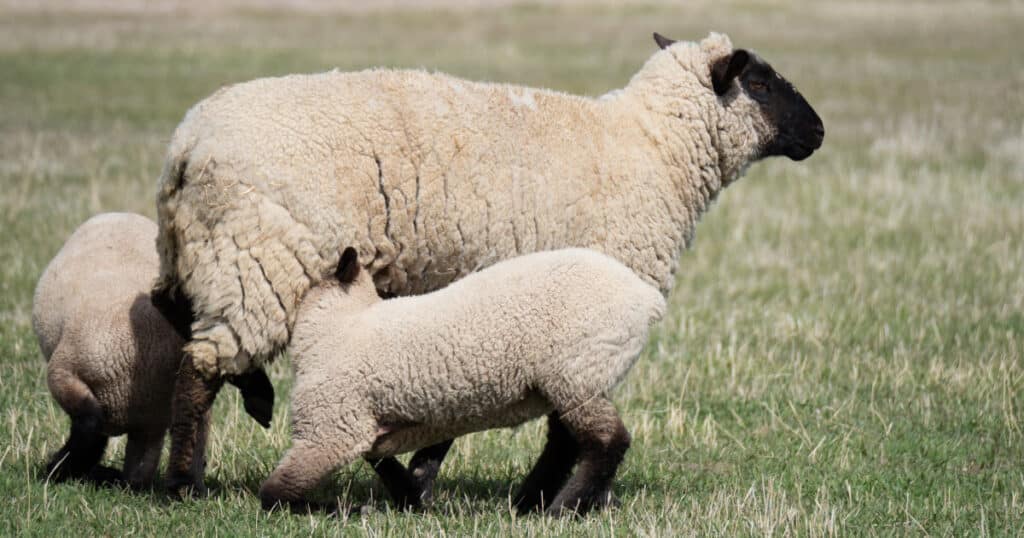Overeating Disease in sheep (also known as Enterotoxemia) is usually severe and can affect sheep of all ages. The disease is caused by two different strains of bacteria which are present in sheep’s gastrointestinal tract. These bacteria (Clostridium perfringens) normally are low-lying and don’t negatively impact your sheep’s health. In severe cases, overeating disease can be quite serious and could result in death. In general it is much more likely that you will be successful preventing Enterotoxemia than you will in treating it.
What Causes Overeating Disease in Sheep
Enterotoxemia is caused by the C and D strains of the gastrointestinal bacteria Clostridium perfringens.
These normally harmless bacteria can experience explosive growth when an un-vaccinated lamb or sheep’s diet suddenly changes. This can be the result of a sudden surplus of available creep feed, milk or grasses.
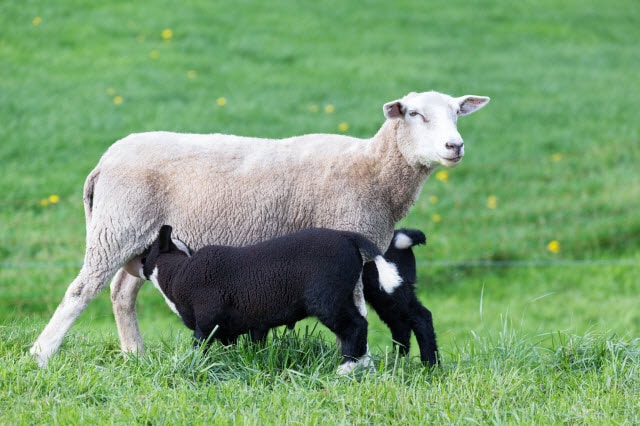
When your sheep consumes more food than it is accustomed to this surplus of sugar and starch causes these bacteria strains to reproduce. This occurs in an effort to keep pace with the animal’s digestive needs. This, in turn, produces a serious amount of toxic bacterial poisons which harm the animal.
These bacterial poisons cause serious damage to the sheep’s intestinal tract and other organs. Un-vaccinated animals and newborn lambs born to un-vaccinated mothers will often find the condition fatal.
How to Diagnose Enterotoxemia
The most common symptoms for overeating disease in sheep include:
- Your lamb or adult sheep will stop eating and generally be lethargic.
- Some sheep may display signs of stomach discomfort. This can include laying down and getting up repeatedly, moaning or crying out and/or kicking at their belly.
- Diarrhea could develop and you may see blood in the stool.
- Animals may lose the ability to stand. If this occurs you will commonly find them laying on their side with their legs extended. Their head and neck will extend back over the withers. This posture is due to the effects of the disease on the brain. This is commonly the final symptom. Death can occur within minutes to hours of observing a sheep with overeating disease in this position.
- It’s important to note that Enterotoxemia progresses very rapidly. An otherwise healthy sheep can quickly progress and die within 24 hours of displaying symptoms.
Preventing & Treating Overeating Disease
Treatment of overeating disease is often unsuccessful due to the rapid progression of the disease. That said, veterinarians regularly use several techniques which, if employed early, can be successful.
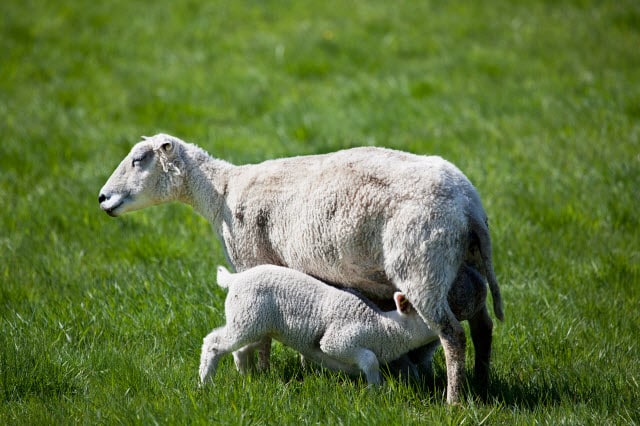
Administering electrolyte solutions along with probiotics (good bacteria) and antisera (a solution of concentrated antibodies which will neutralize the toxins produced by the bad bacteria) can save a sheep affected by Enterotoxemia. However, you must administer this before the illness progresses too quickly.
Prevention of overeating disease in sheep is much more likely to be successful. This is easy through vaccination of your lambs.
There are multiple vaccines available which will make your sheep immune to the toxins produced by Clostridium perfringens. Many veterinarians recommend that you use a vaccine which also includes a vaccination for Tetanus.
Recommended Vaccine for Overeating Disease in Sheep:
Essential 3 + T, 125 doses (CD&T) – (formerly Clostridium Perfringens Types C & D – Tetanus Toxoid). It is for use in healthy sheep to prevent Overeating Disease (Enterotoxemia). Here’s our review.
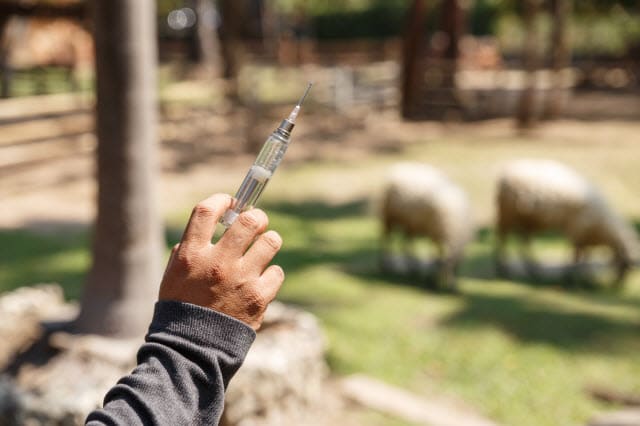
Typically this vaccine will require two doses when you first administer it to your lambs. Plan to give your lambs shots about two weeks apart (make sure you follow the directions on the bottle or consult your veterinarian).
Adult sheep will need a vaccine on an annual basis. Some flocks will require more frequent vaccination, depending upon the type of grasses and feed available to them.
Tips for Managing Your Flock to Prevent Overeating Disease in Sheep
There are several flock management practices you can employ to help reduce the risk of having your sheep affected by overeating disease or Enterotoxemia.
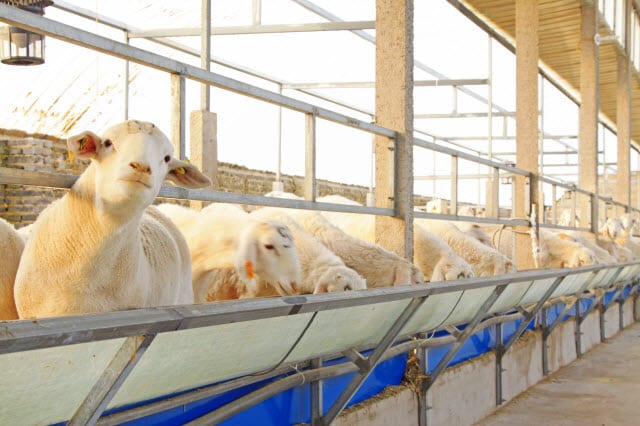
We recommend that any time you’re changing the type of food available to your sheep (whether it’s turning them out onto lush pasture for the first time, changing grains or adding barley to their regular food) that you make the transition gradually.
Limit your flock to a few hours of grazing the first few times you turn them out on pasture. This way they can acclimate.
Mix any new foods with the food that they have been eating as you introduce a new feed.
If you have heavy-milking ewes, you can help prevent overeating disease in lambs by reducing the amount of grain you feed your ewes. Hay and other roughage will make it more challenging to produce high volumes of milk.
A combination of smart management practices and vaccinating for Enterotoxemia can help ensure that your flock is less susceptible to overeating disease in sheep.

